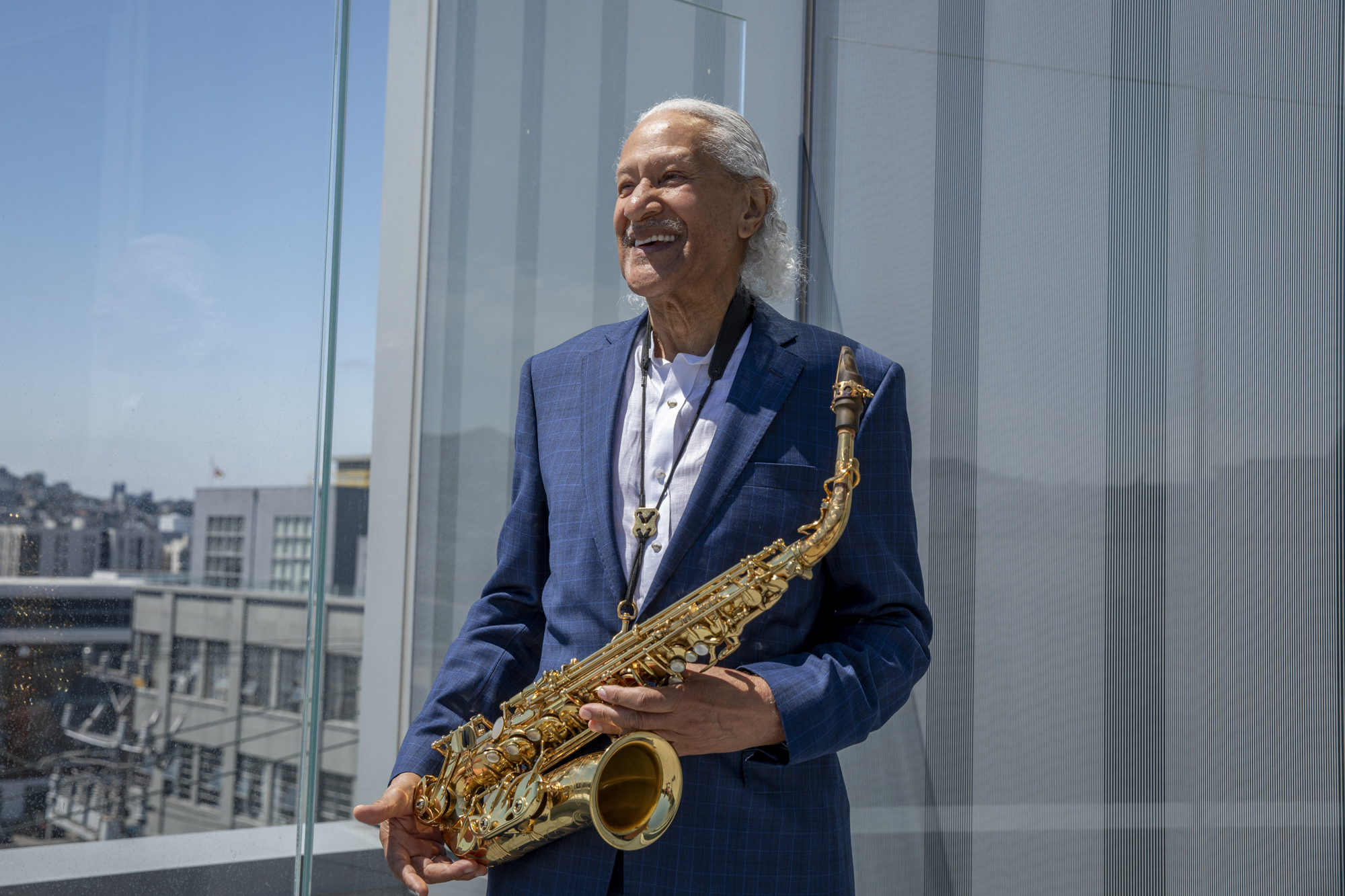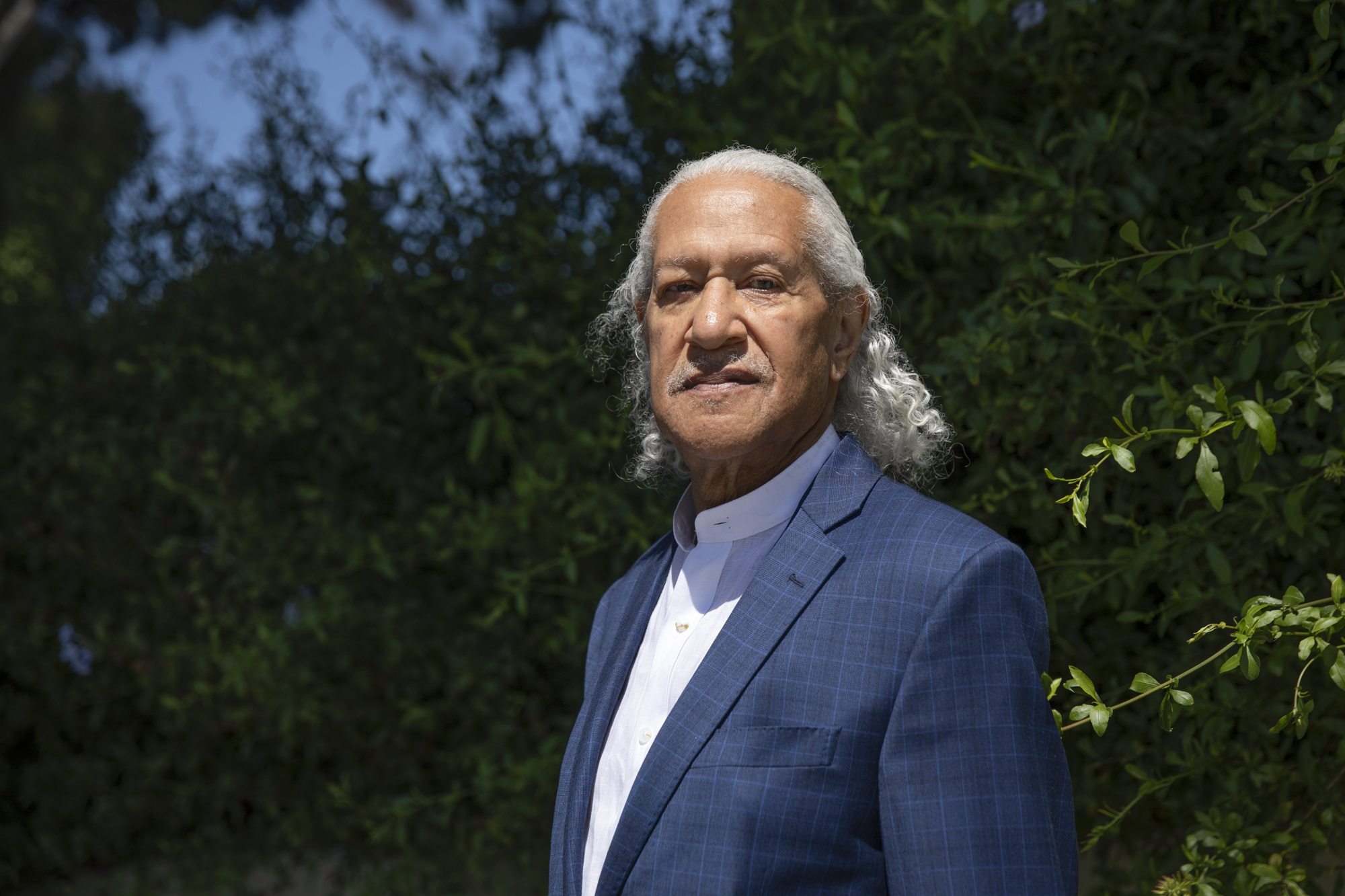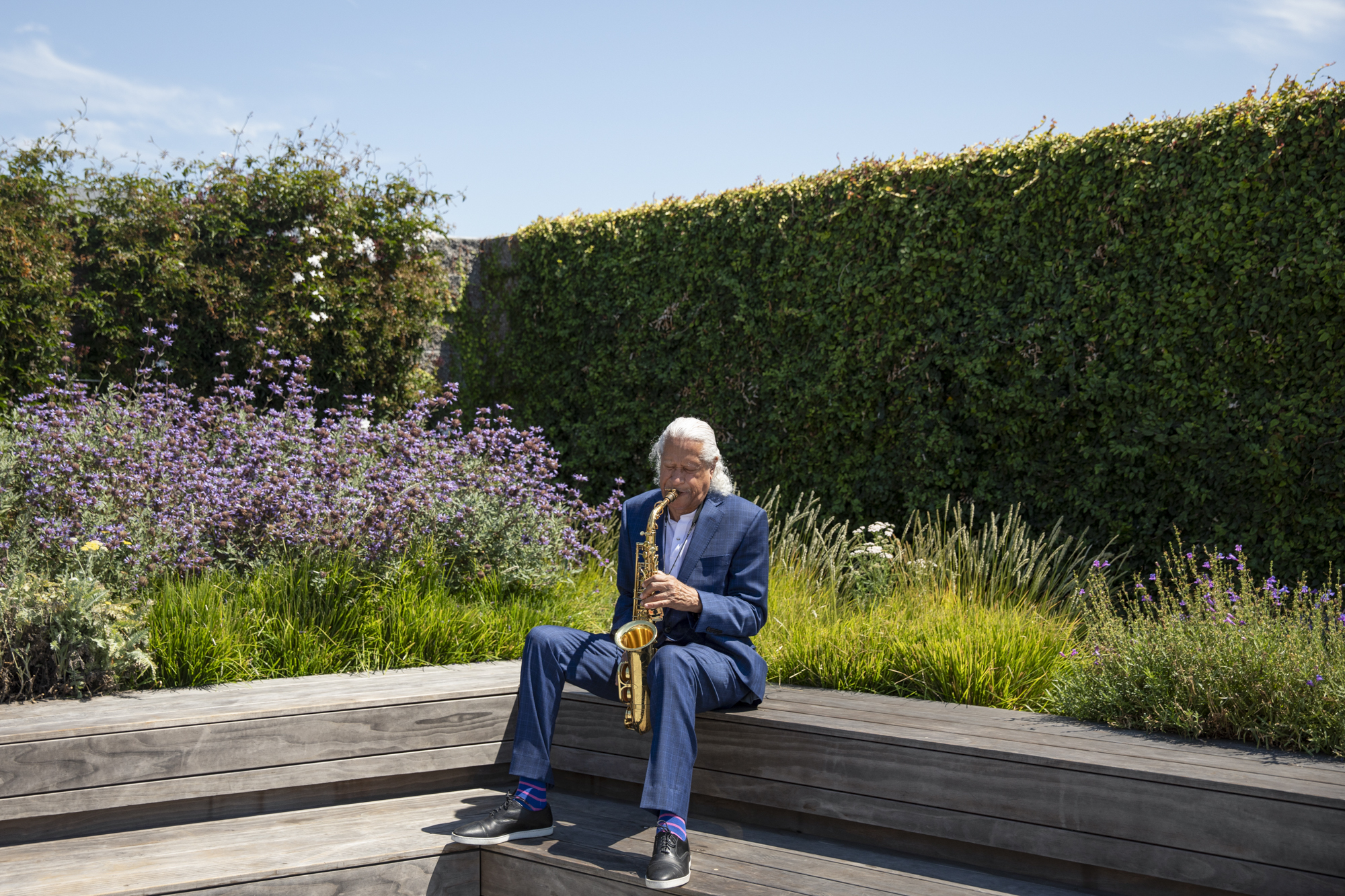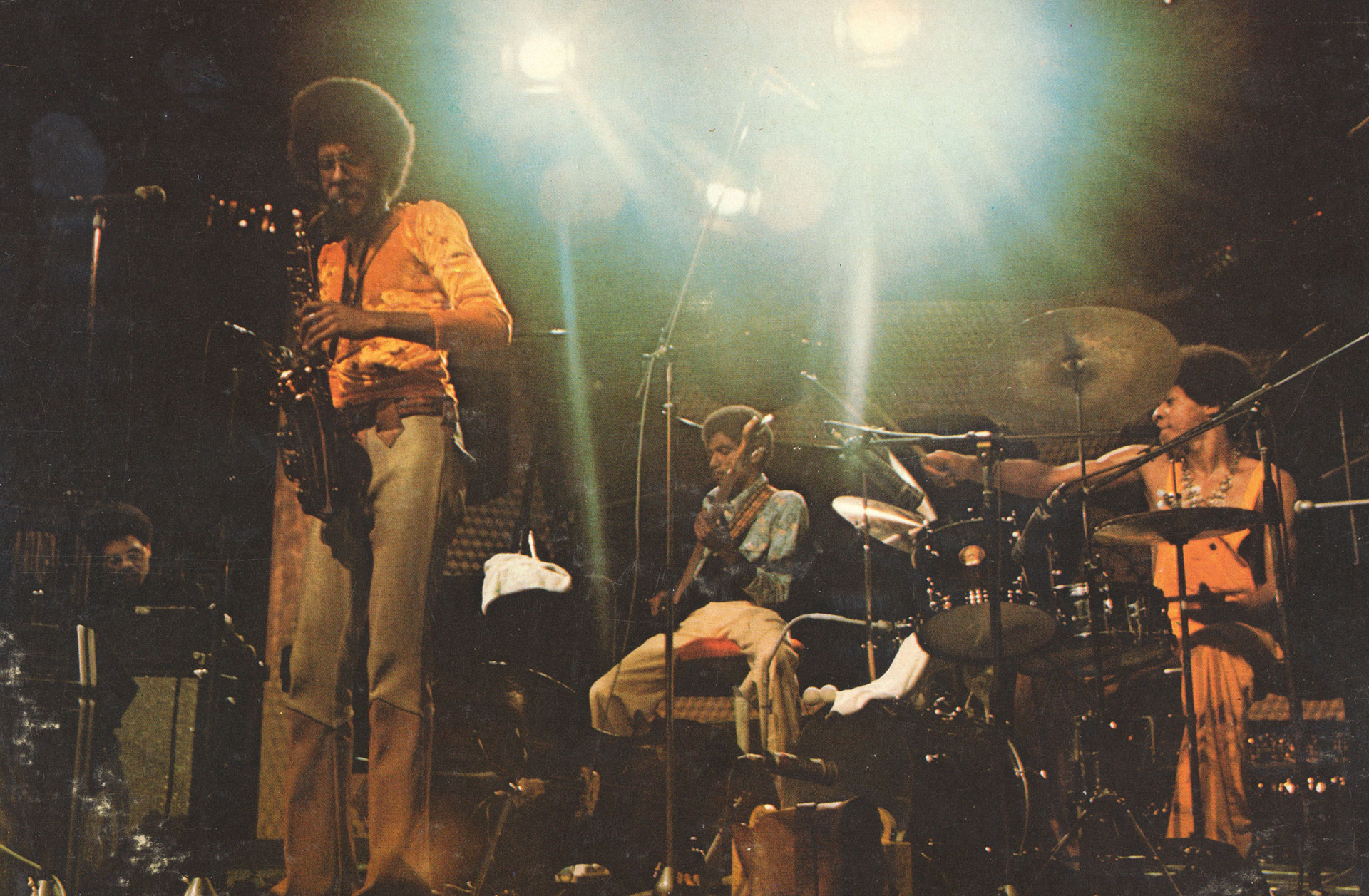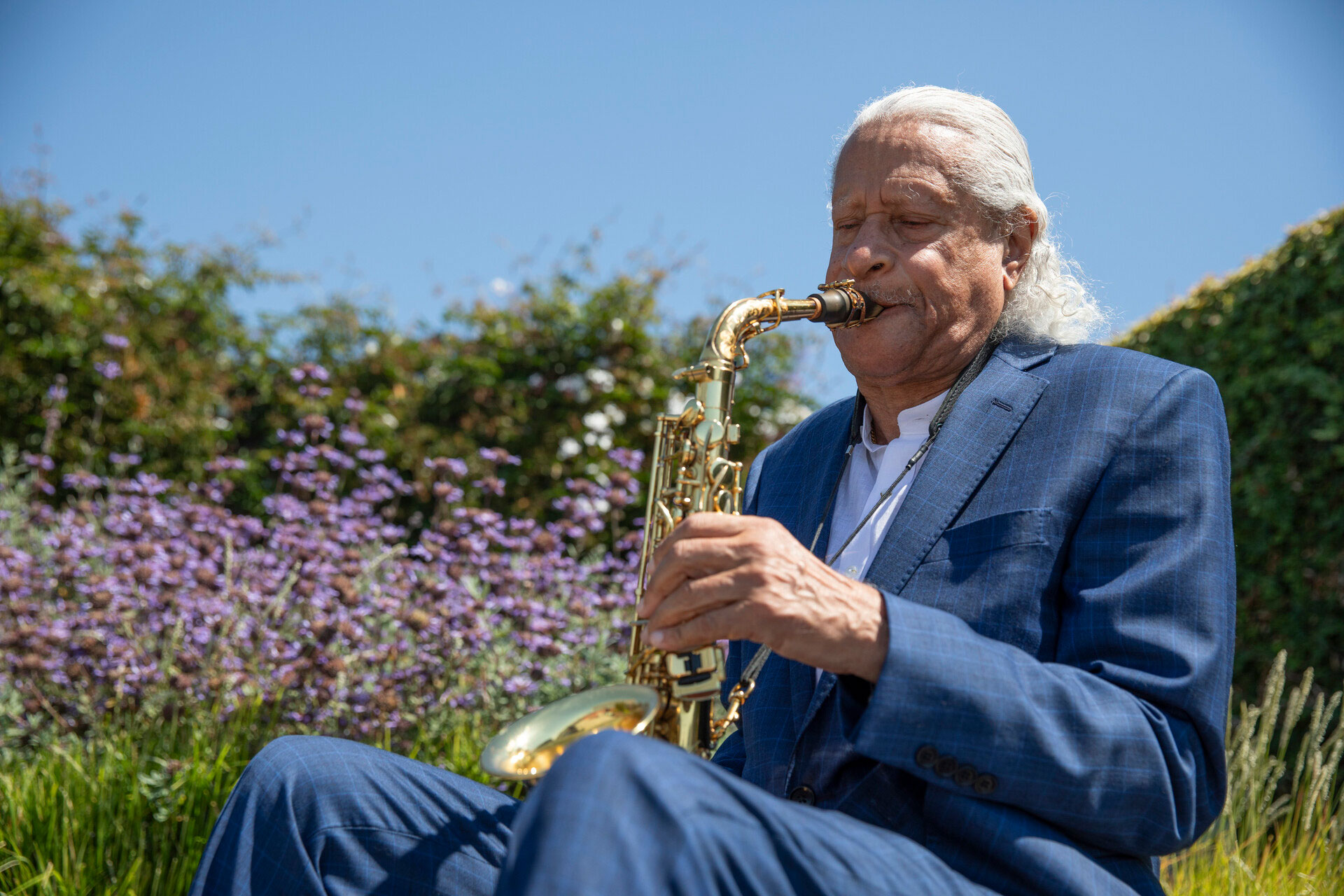
This story is part of the series 8 Over 80, celebrating artists and cultural figures over the age of 80 who continue to shape the greater Bay Area.
G
ary Bartz wants to go to the playground. Walking along 17th Street in San Francisco, he spies a swing set in Franklin Square and clambers up the park stairs, carrying his saxophone.
In his 82 years, Bartz has released dozens of albums under his own name, and hundreds more as a sideman. He’s performed thousands of concerts with jazz luminaries like Miles Davis, Pharoah Sanders and Art Blakey, all over the globe. In August, three weeks before we meet, the NEA named him a 2024 Jazz Master, a prestigious national honor.
But today, he’s just returned from a marathon three-week recording session in Los Angeles, and he’s ready to unwind. At the playground, he hops on a swing, throws his head back with a wide smile and starts singing: “Fairy tales can come true / It can happen to you / If you’re young at heart…”
The passage of time, this inevitable thing that might nag at other octogenarians, comes to a halt. For a moment, singing of love and life and dreams, Bartz is a kid again, transported back to his childhood in Baltimore. When he reaches the end of the song, he stands up, brushes the dirt from the swing’s chains off his hands, and asks out loud to no one in particular:
“Who’s 82 now?!”
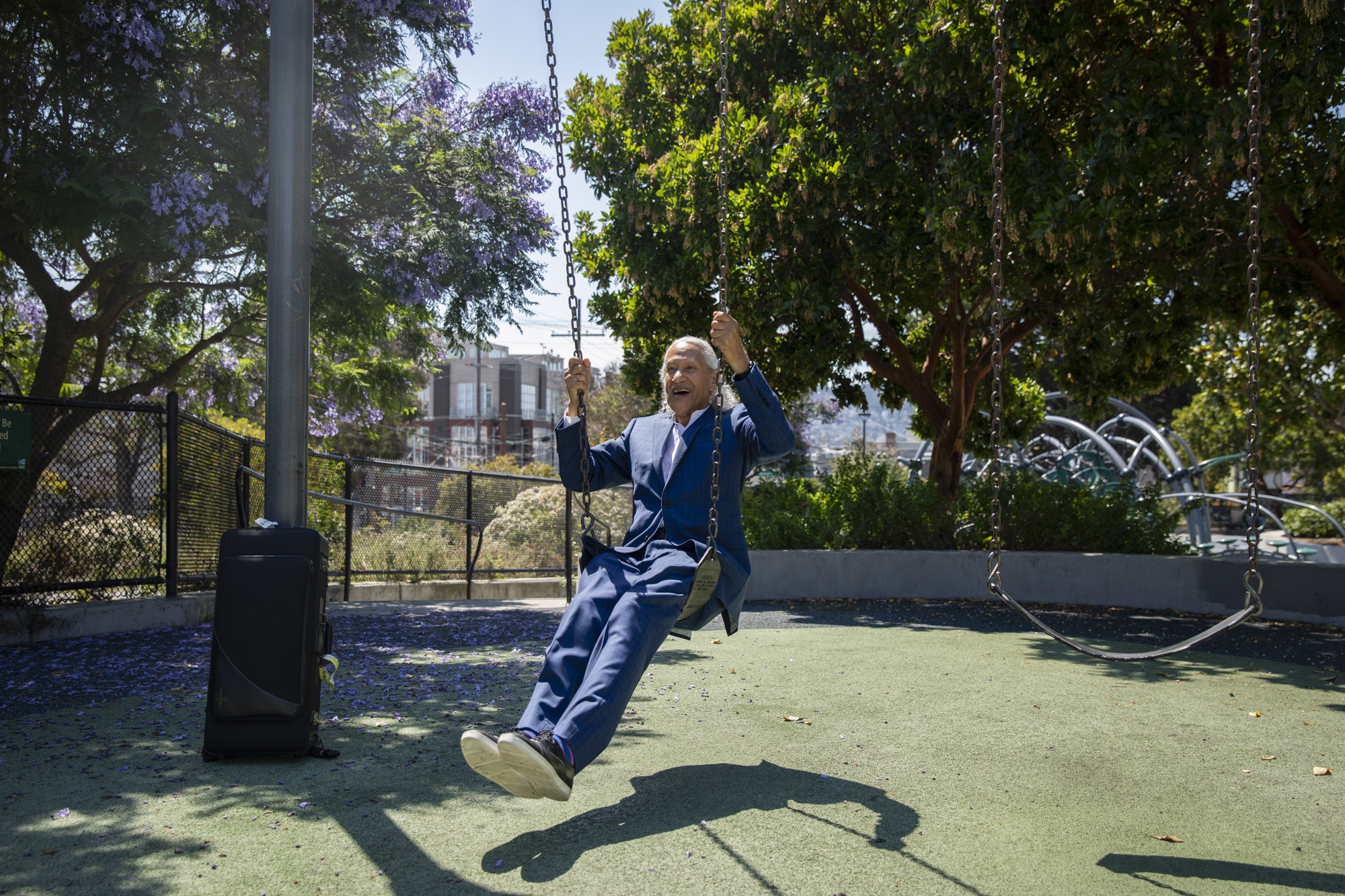
There may be a reason for Bartz’s carefree mood these days. In addition to the NEA honor, which comes with a $25,000 grant, his music is undergoing a renaissance among younger listeners. Part of it is his recent collaboration with Adrian Younge and Ali Shaheed Muhammad (from A Tribe Called Quest) in their Jazz Is Dead series, which introduced Bartz to a new audience amidst a growing crossover of jazz and hip-hop.
But mainly, it’s that Bartz has always made music that reflects the emotional, spiritual and political realms of the world. Everyone else is just catching up, is all.
